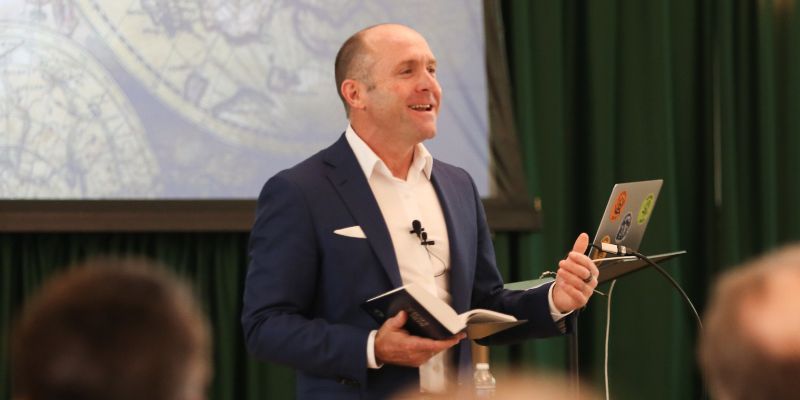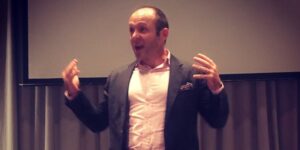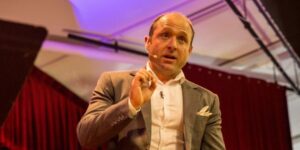After a brief hiatus due to a bike crash, Jonathan returns with insights on Abigail Shrier’s ‘Bad Therapy’ and the pursuit of happiness. Join us as we delve into the misconception of happiness, the virtue of eudaimonia, and the call to holiness in Catholic tradition. Discover why focusing solely on positivity may not serve our students’ well-being. Tune in for a refreshing perspective on guiding our youth towards true fulfillment.
Welcome Aboard
Hello there. My friend, Jonathan Doyle, is with you once again. Welcome aboard to the Catholic Teacher Daily Podcast. This is my great comeback tour. I was missing for a couple of weeks. I had a really bad bike crash, I broke 12 ribs. Shattered my shoulder and fractured my collarbone. I have two big steel plates on my shoulder now and eight screws. It’s going to make airport travel even more interesting, but thank you for your prayers. If you were following me on Instagram at @jdoylespeaks, you can find me there. You can see some of the photos. What a week it’s been, but it’s been seven days since the operation, and I’m feeling good. God is good. I’m back with you and I’m privileged to do that.
I love Catholic education. I’m just amazed at the amazing work you do every single day. Did you know that God’s proud of you? Do you know that he wants you to be a saint? Do you know that he wants you to grow in holiness, virtue, and peace, and he’s got huge plans for your life? The best thing in town, the only game in town is discipleship with our Lord and Savior, Jesus Christ. How he wants to grow you into an image of himself and just how precious your work is every single day with your students.
Abigail Shrier's "Bad Therapy": A Critical Review
I wanted to talk about this. Today we are going to talk about the issue of Abigail Shrier‘s new book, Bad Therapy. If you’ve been following along this week, I’ve been talking about this book, Bad Therapy, which I’ve just read. It’s a really important book. I do recommend it to you; maybe the audio version could be helpful or the print version is great.
It’s basically a book about the slaughtering of many sacred cows. It’s basically looking at the huge therapeutic industry, the self-diagnosis, and the mental health and wellbeing obsession that drives a lot of pastoral approaches. It gives you some incredible research and data on that. So I did recommend it to you.
Reevaluating the Illusion of Happiness
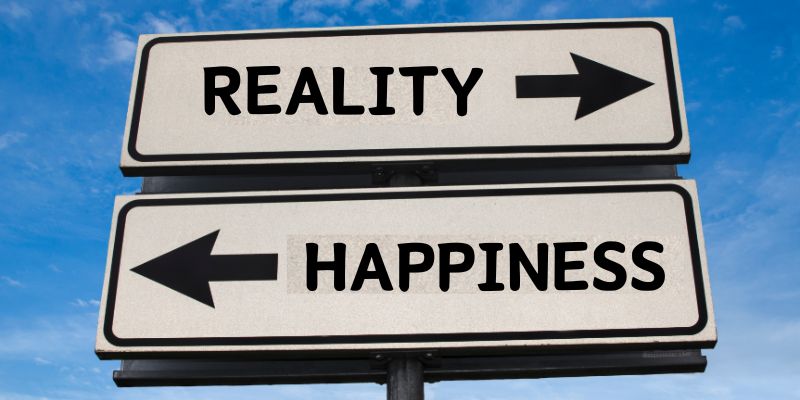
Listen, today I want to share with you a quote from the book. When I read this sort of stuff, I’m quite forensic. I read it carefully and then I type out a lot of the research. So I’ve got it on file. So I can at least present the illusion of knowing what I’m talking about. There’s a great quote today and it’s simply what Abigail Shrier says,
“In so many ways we signal to kids that happiness is the ultimate goal…chasing positivity tends to make them more depressed.”
Abigail Shirer Tweet
The Perils of Emotional Focus

So let’s talk about a few things here. I think if you listen to yesterday’s episode, it was a longer one. I do encourage; if you didn’t hear it, we talk about the danger of teaching young people to focus intensely on their own emotions. Because emotions are transitory and they’re very responsive to our attention to them. If we focus on emotions, they can be accentuated. They can be intensified by our attention. We want to be careful what emotions we’re paying attention to.
What she’s saying in today’s quote is that the focus is on the water. This idea that happiness is somehow the goal of existence. Kids are being raised to believe that it’s important to be happy, and you’ve got to be happy. If you’re not happy, something’s really wrong.
Redefining Happiness: A Historical Perspective
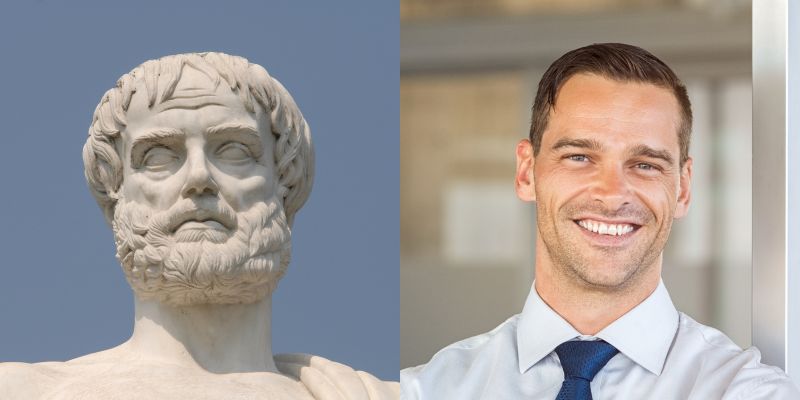
I’m going to take you on a really quick tour of happiness. This comes from the work I read years ago, Michael Jones‘s book. I think it was a Libido Dominandi, and it’s a really interesting forensic analysis of the concept of happiness.
I want you to understand this; it’s very important. When you say to most people in the 21st century, what do you think happiness means? They might give you a set of criteria. I’m happy if I have this, I’m happy if I have that. But what you’re going to find is that the vast majority of people, if they haven’t studied Aristotelian metaphysics, as I have. People will interpret it as a psychological feeling state. What is happiness? It’s a feeling, right? Happiness is something you feel; it is a psychological feeling state.
It can be created based on a bunch of criteria. You can create your life to have certain things in it. And then, if those things are in it, you feel this feeling called happiness. The interesting thing about this is that it did not exist until around the time of the French Revolution. For the entirety of human history, before that, people would not have understood the concept of happiness that way.
Eudaimonia: The Aristotelian View

So happiness, as we would understand it, at least in the Western tradition, comes to us of course from the Aristotelian to Aristotle’s concepts of eudaimonia. Now please do not press pause because these are big-sounding words, but they’re very important. Eudaimonia is a concept in classical Greek thought. That argued that all of us, that each human person has within them something called a ‘Damon.’ Not a demon, a Damon.
I explain it to audiences like a piece of software code. It’s like a Damon was like a code that is written on your soul. And eudaimonia is the process by which all of your capacity to become what you fully could become is actualized in the world. So eudaimonia is a state of being when you experience full human flourishing, you become really what you were created to become; you’re living.
If I could use some tacky Instagram language, you’re living your best self or your fullest life. But eudaimonia was, and if you lived that you became what was known as a eudaimon. The point was that it was coterminous; it meant the same as virtue.
Virtue and Fulfillment: The Classical Understanding
In classical antiquity, the happy person was the virtuous person, the vehicle by which you attained eudaimonia; it was the exercise and practice of virtue. Prudence, justice, temperance, and fortitude, that you would do certain things. And then, because you did certain things, you became a certain kind of person. So the goal of life wasn’t happiness as a psychological feeling state.
The way that I explained this to audiences is that you can be a serial killer and be happy. Like, you can be an ex-murderer and experience the psychological feeling of happiness. Because you have attached an ultimate value to an aberrant behavior. Humans are very capable of attaching positive feeling states to really negative things.
Rethinking Happiness: Beyond Psychological States

Let me try and bring all this together. What she’s saying in this quote, she says in so many ways, we signaled to kids that happiness is the ultimate goal. Being positive and having this positive psychological feeling state is the goal.
Now, if you set up a culture that way, particularly for young people, what do you think happens when they feel negative emotions? If we’ve told them that the point of life is happiness, feeling good and being positive, and they don’t feel that. Well, I don’t know. I would feel like I was a failure, and I would be really confused. I’d be like, everyone around me tells me I should be feeling this, but I feel this. That I’m miserable, and then I’m depressed. And then it’s filling in the blanks from there.
Embracing Catholic Discipleship and the Purpose of Existence
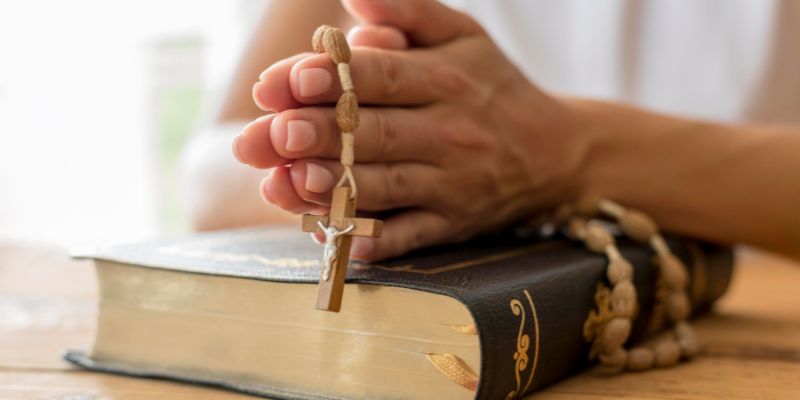
So what I’m going to offer you is: how does that Catholic tradition speak into this? Our Catholic tradition. What is the purpose of existence? The purpose of existence is beatitude. The purpose of existence is to return to the home of the father and to be in a permanent, eternal relationship with God, because that is our beatitude. That is what we were made for, that is our end, that is the ultimate fulfillment of what we are created to be. To behold the face of Christ, to see the miraculous vision of being in the new heaven and the new earth, to do the things that God has in store for us. That’s the purpose of existence. The vehicle for that is to become saints. That’s what we do; that’s the call upon our lives.
The way that we do that is through the exercise of virtue, through practicing the virtues, through going in virtue, through prayer, and through the sacraments. So that is Catholicism, 30,000-foot view.
Beyond Psychological States: Embracing Virtue
The purpose of our lives is not a psychological feeling state. The purpose of our lives is not to be positive. Being positive is not a bad thing. It could depend on your character. It’s got character components that could depend on your personality and depend on a bunch of different things. I used to find that when I was training really hard, I’d go and do a 60 or 80K ride at 5:00 AM. I’d come home and have a really hot shower and a coffee. I felt great, I just felt really good, I was really positive. But it’s later in the day, by 4:00 PM I was like, I’m thinking, Oh, I just want to go to bed and I’m tired.
So positivity and the psychological feeling of happiness, they come, they go right there. They are dependent on any number of circumstantial things. So virtue is something else. And I have begun to notice this in my life. I said this recently speaking to about three or 400 teachers. And I said,I have to say this really carefully, because if you hear me wrong, it’s going to sound quite facetious. But I have noticed that as I have persevered for many years, in the work of prayer and practicing my faith, I’ve noticed I’m going to call it glacial, this glacial advancement in virtue.
Encountering Christ and Flourishing

As that has happened, I’ve noticed a kind of settling and a sense of peace and a groundedness that probably wasn’t there before. Now, I know we could say you don’t, and you’ve got to get older, and mechanics pick kids to feel this way. Yeah, I’m curious, I’m just wondering if maybe we spoke more to them about virtue and flourishing and living in harmony with nature has created contingent beings. Beings who are made for worship, beings who are made for sacrament, and beings who are made for prayer. Beings who were made for holiness, made for relationships.
Maybe if we started to say, “Look, we’re actually, might’ve been a bit wrong. We’ve been trying to sell you on a psychological feeling state, and we’re trying to sell you on being positive, but none of us are able to really pull it off in our own strength. But there is this other thing, it’s called an encounter with the Lord Jesus Christ and his church. And. If we live in that relationship, we still struggle, we still suffer, we still have setbacks. But I’m just putting this out there for you today. I’m wondering what you think.
Educating for Virtue: A Call to Catholic Educators

When I was teaching, I remember that I used to coach a lot of rugby. God gave me this beautiful gift, and it was that I had this ability to see something in students or kids I was coaching, when they definitely couldn’t say to themselves. I remember this one kid, like his dad came to see me, his dad was really gratefully saying, Look, I said, my son, he said, he just really loves you coaching him, he’s just been a different kid. And it was a real blessing to hear it, because I just thought the kid was awesome. He’s such a good kid and I just kind of saw it.
That’s one of the graces of the teaching vocation, and so many of you listening to me have that with you. You can see the goodness when they cannot see it themselves. I wonder if we began to see that in our kids, in our students, we began to see this capacity for virtue. I’m really convinced that we have expected too little of them for way too long. We have just dumbed down the faith, and we’ve just thought they’re not going to go for it.
Friends, look at what the data is telling us, look at the mental health pathology, look at the self-harm and look at the misery. The culture that they thought would make them happy is not making them happy. It’s making them depressed, it’s making them medicated, it’s making them miserable. So I’m beginning to wonder if we. I began to really take Matthew 28 seriously and realized that the call upon our lives is to make disciples.
Embracing Truth and Virtue in Education

I don’t know; there’s a lot in today’s episode but in summary, I think selling them on abstract concepts of human happiness hasn’t served them. And I think inculcating this idea of being positive and upbeat hasn’t served them. I think what will serve them is to live a life in accordance with the truth of nature, to live a life of truth in accordance with the truth of their nature.
We are in Latin, what we call Capax Dei, that which has the capacity for God. We are God-seeking beings. As St. Augustine says, our hearts are restless. ‘You’ve made us for yourself Lord, and our hearts are restless until they rest in thee.’ Amen. Come, Lord Jesus.
Conclusion and Call to Action
All right, I don’t know if you are still with me. Well done. There’s a lot in that, but I’m praying for you. If you can just reach one kid with this kind of insight, that’s enough. Please make sure you’ve subscribed; hit the subscribe button for me. I’d love for you to share this with the teachers. Everything else is on the website. You can find me at jonathandoyle.co. You can book me for all sorts of events for Catholic education and also Catholic consultancy. I do a lot of consulting work with large Catholic organizations around the world. But if you’re on Instagram, come and say hi. You can find me at @jdoylespeaks.
God bless you, my friend. My name is Jonathan Doyle. This has been the Catholic Teacher Daily Podcast. And you and I are going to talk again tomorrow.
